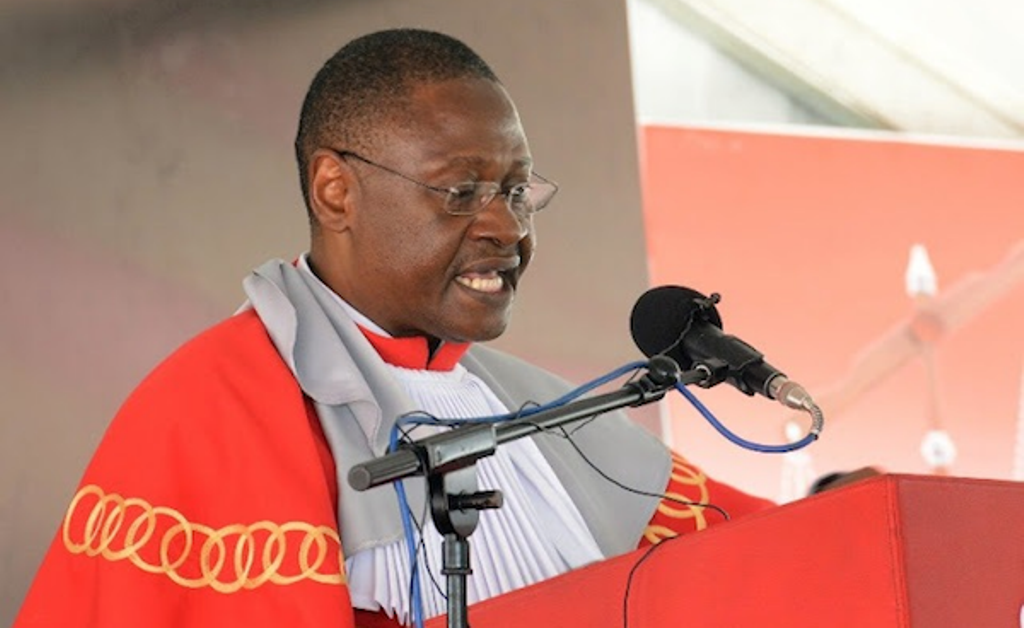AfricaPress-Tanzania: THE Judiciary has recorded tremendous achievements in dispensing and delivery of justice as the High Court of Tanzania prepares to mark a century of its existence.
This was revealed by the Chief Justice Prof Ibrahim Juma at a press conference in Dar es Salaam on Monday, ahead of the Law Day celebrations to be marked at national level on February 1, 2021, for the first time at Chinangali Grounds in Dodoma city.
The theme of the Law Day, to be officiated by President John Magufuli, is ‘100 Years of the High Court: The Contribution of the Judiciary in Building a Country based on Freedom, Justice, Brotherhood, Peace and Welfare of the People 1920-2020′. This theme, Prof juma said, reminds Tanzanians on the contribution of Judiciary of Tanzania from the colonial era.
“It also reminds our destiny when we got our independence, how our country was built by the founders of the nation so far. Basically, the biggest contribution has been strengthening the values of peace, which to this day, are a role model to many nations all over the World,” he said.
Prof Juma explained among the achievements as easy access to judicial-related information, heavy investments in using Information and Communication Technology (ICT) in determination of cases and that the Judiciary has for all such period remained independent in performing its functions.
The head of the judiciary was, however, quick to point out, “When we talk about the independence of the judiciary that is one side of the coin and the other side is accountability. When you look at it in court, our performance is measured responsibly,” he said.
For example, according to him, accountabilities of Justices of the Court of Appeal are measured when assigned cases to hear in a particular session and usually within the session the judgment must have been rendered.
“You can therefore evaluate a judge throughout the year if the judgments have been handed down for a specified period of time. Similarly, there are specific numbers of judgments High Court judges are required to deliver a year. Those who do not complete are monitored by the Principle Judge,” he said.
Equally, the CJ said, there was also a question of time within which as case should remain in court. He pointed out that when a case is opened in Primary Court has to be disposed of not more than six months, whole in District and Resident Magistrate’s Courts the case should not exceed 12 months.
The chief justice also explained that for the High Court a case should not exceed 24 months. Therefore, he said, those are the criteria available to follow-up to ensure that cases are not delayed and judgments are delivered in time.
“So, that is a very good example of accountability that helps us to ensure that in addition to having the freedom to deliver justice without interference, there are issues of timely justice that court officials can interfere with,” he said.
Prof Juma also explained that there would be a Law Week prior to the Law Day cerebrations to be held at Nyerere Square between January 23 and 29, 2021, a session which would be preceded by a procession, whose guest of honour will be Vice-President Samia Suluhu Hassan on January 24, 2021.
During the Law Week, Prof Juma said legal education would be provided by judicial officials and other stakeholders on a number of areas, including procedures of filing and conducting of cases and they would receive complaints and recommendations on improving legal services.
The justice system at the High Court level has a long history, from the times when justice at such level was most accessible only in Dar es Salaam; and later in the towns covered by the Central Railway and the Tanga Railway, which were visited by judges in within short times a year.
Following Germany’s defeat in First World War, the British nation was handed over to Tanganyika on September 25, 1920 as a colony under the auspices of the League of Nations.
To govern Tanganyika, King George V, on the advice of the Privy Council, drafted the Declaration Order, the Tanganyika Order in Council 1920, which established the position of Governor of Tanganyika who was given authority to make laws on taxation, land and peace and stability issues.
Following its commencement under Article 17 of the Order, the High Court officially commenced judicial proceedings on January 3, 1921. The High Court commenced its proceedings with Chief Justice Sir William Morris Carter (former Chief Justice of Tanganyika from 1920-1924).
There were also two ordinary judges, Judge Gilchrist Gibb Alexander (1920 to 1925), who was famously called Judge in Red Crown and Judge Robert Walker (1921-1925).
The first task of the Chief Justice and the two Judges was to establish the Judiciary of Tanganyika, which follows the judicial procedures and customs of British Law and Tradition. This was in contrast to the judicial system that existed during the German regime that called Tanganyika as German East Africa.
Chief Justice Carter and his two judges had the initial task of drafting the Rules for conducting judicial proceedings. They drafted a Code establishing the High Court Registries Rules, 1921 which, after their recommendation, was approved by the Governor on January 27, 1921.
The result was the establishment of three Registries of the High Court District Registries of Tanga, Tabora and Mwanza. The Tanga Registry served Pangani, Usambara, Moshi and Arusha districts, while the Mwanza Registry served Mwanza and Bukoba districts.
So far, as the High Court is celebrating the anniversary of 100 years of its establishment, there is Court of Appeal and its sub-registries, High Court (Main Registry) with 16 High Court Zones together with four Divisions.







